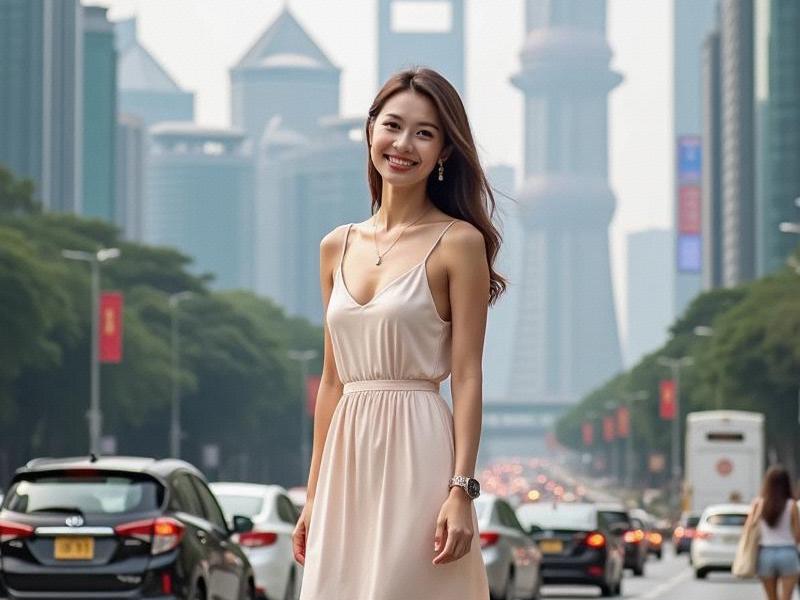This feature explores how Shanghai's modern women are redefining Chinese femininity by blending traditional elegance with contemporary ambition, set against the backdorpof China's most cosmopolitan city.

The neon lights of Nanjing Road reflect off rain-slicked pavement as a young woman in a tailored qipao-inspired dress strides confidently toward the Bund. Her Louboutin heels click rhythmically against the historic stones, her smartphone buzzing with WeChat messages from both her investment banking team and her weekend book club. This is the new face of Shanghai beauty - where centuries of feminine tradition dance with 21st-century ambition.
Shanghai has always been China's fashion capital, but today's Shanghainese women are writing a new chapter in the city's style narrative. Walk through Xintiandi's art deco lanes or the luxury boutiques of Plaza 66, and you'll witness a sartorial revolution. Local designers like Helen Lee are reinventing cheongsam with contemporary cuts, while young professionals mix Uniqlo basics with vintage Mao-era accessories. "Shanghai style isn't about following trends - it's about creating them," explains fashion blogger Vivian Xue, whose "Shanghai Chic" Weibo account boasts 2.3 million followers.
阿拉爱上海 The beauty standards here reflect the city's unique East-meets-West history. Skincare routines might combine French pharmacy brands with traditional Chinese medicine ingredients like pearl powder. At the newly opened Diane Beauty Salon in Jing'an, clients can choose between Korean-style gradient lips or the classic "Shanghai red" lipstick popularized in 1930s jazz clubs. "Our clients want to look international but distinctly Chinese," says owner Diane Wong.
More striking than the physical transformation is the evolving role of Shanghai women in society. Once known as China's most spoiled "little princesses," today's Shanghainese women are shattering glass ceilings. Women hold 38% of senior management positions in Shanghai-based companies - the highest rate in mainland China. Tech entrepreneur Lucy Lu, named in Forbes' "30 Under 30 Asia" list, represents this new generation: "My grandmother bound her feet. My mother worked in a textile factory. I'm building AI solutions for global markets - that's Shanghai's progress."
爱上海419论坛
This ambition comes with unique pressures. Dating apps like Tantan reveal that many Shanghai men still prefer "温柔" (gentle) partners, creating tension for career-driven women. Counseling centers report increasing cases of "leftover women" anxiety among successful professionals over 30. Yet the city's female empowerment movements are gaining momentum, with events like the annual "Shanghai She-E-O" conference drawing thousands.
上海品茶论坛 The cultural scene reflects these contradictions. Hit TV dramas like "Nothing But Thirty" portray the complex lives of Shanghai women navigating careers and relationships. At the same time, traditional "matchmaking corners" in People's Park continue to thrive, where parents exchange CV-like profiles of their unmarried daughters.
As dusk falls over the Huangpu River, groups of women gather at rooftop bars in the Pudong financial district. They toast with chrysanthemum-infused cocktails, discussing everything from blockchain to the best xiaolongbao in the city. Their laughter mingles with the hum of the Maglev train speeding toward the airport - a fitting metaphor for Shanghai women racing toward the future while carrying their heritage like a designer handbag.
This is the essence of Shanghai beauty today: the ability to code-switch between Mandarin and English, to pair a vintage silk scarf with a power suit, to honor one's grandmother's recipes while building a startup. In a city that's always looked outward, its women are creating a new Chinese femininity - one high-speed train ride at a time.